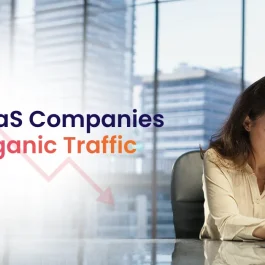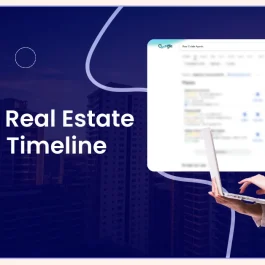8 min read
Introduction to the Concept
A zero-click search is a search query where the user gets the answer on the search engine results page (SERP) directly. They do not need to click any link. This has a huge impact on SEO and digital marketing because it changes how users interact with a search engine and a website.
Zero-click searches are now common.
- Nearly 60% of Google searches ended without a click in 2024,
- Around 58.5% are zero clicks of the total searches in the U.S., and 59.7% in the EU.
Understanding zero-click searches helps businesses and marketers adjust their plans and keep visibility in a changing search landscape.
Zero-click searches have fundamentally changed how users access information. Previously user would enter a query and click through several links. But now searchers often get a direct answer on the SERP.
It has reduced the need to visit an external site. This trend is also being followed by new search engine features:
- AI overviews
- Featured snippet
- Knowledge panels
They all collect and present concise details from many sources. These zero-click results often solve basic queries like facts, weather, time checks, and quick calculations.
Table of Contents
The Impact on the Open Web
The growth of zero-click searches has led to a drop in organic search traffic, with about 30% of clicks going to Google properties such as YouTube, Google Images, and Google Maps. Out of 1,000 Google searches, only 360 clicks in the US and 374 in the EU go to the open web, which shows how much zero-click searches affect the open web.
Nearly 30% of all clicks move to Google-owned properties, which changes how clicks are shared across other websites. Organic search traffic is reduced by an estimated 15% to 25% due to zero click results on the google serp. This shift challenges classic SEO plans and forces marketers to find fresh ways to engage users and drive traffic back to their own site.
The open web remains vital for a business, but it now needs a more careful approach to SEO and digital marketing to protect visibility. The pull of Google properties on click share shows how attention is concentrated inside Google’s ecosystem; this makes it harder for independent sites and creators who rely on search traffic for visibility and revenue, since searchers often get enough on the search page and never visit, which raises competition for attention; to counter this, marketers can craft content that ranks and also invites action beyond the search page, with richer media, unique angles, or depth that simple snippets cannot capture..
What is a Zero-Click Result
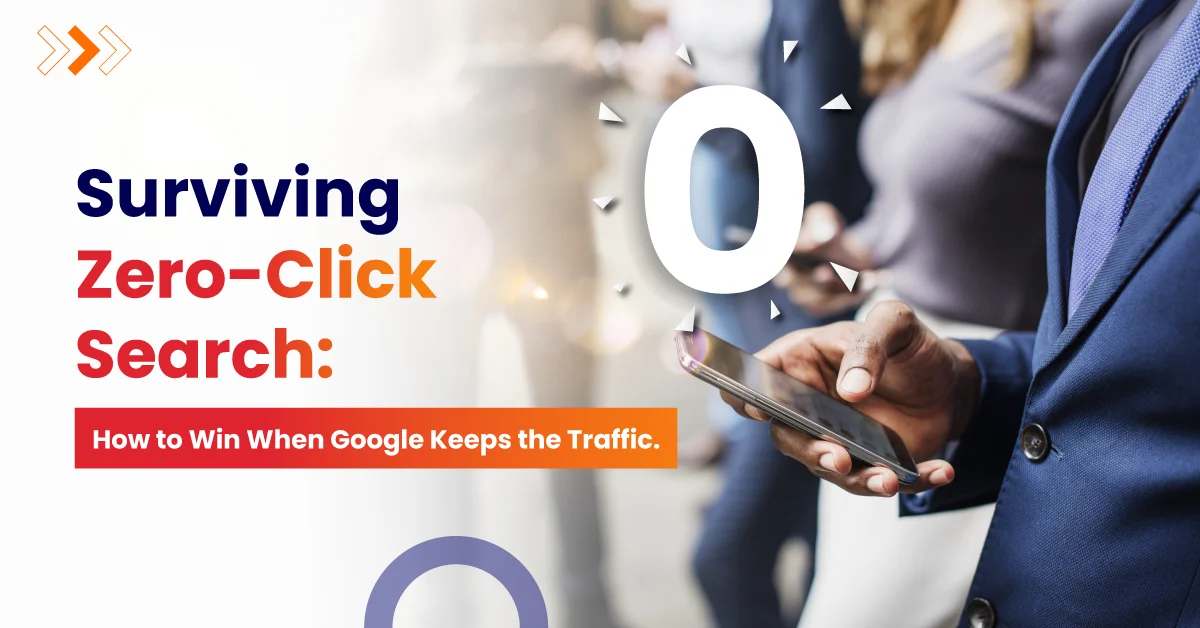
A zero-click result is a search result that delivers the answer on the search page itself, so the user does not have to click a link. Zero-click results include a featured snippet, knowledge panels, direct answer boxes, a local pack, and People Also Ask (PAA) boxes.
A knowledge panel appears on the right side of search results. It shows a short summary about a person, place, or organization. They aim to give quick and accurate answers to a query, which reduces the need for users to visit a website.
Target a specific keyword that targets a local pack: a featured snippet, or People Also Ask (PAA) to improve visibility. Zero-click results are now the basis of modern search. Knowing how they work is essential for SEO and digital marketing.
Zero-click results improve user experience by delivering relevant information fast. For example,
- A featured snippet may give a definition or steps
- Knowledge panel offers a short profile
- A direct answer box gives a clear fact
All these reduce search hurdles for the users. This means creators must optimize content to be concise, accurate, and strong enough to be selected for these prime locations.
Featured Snippets and Their Role
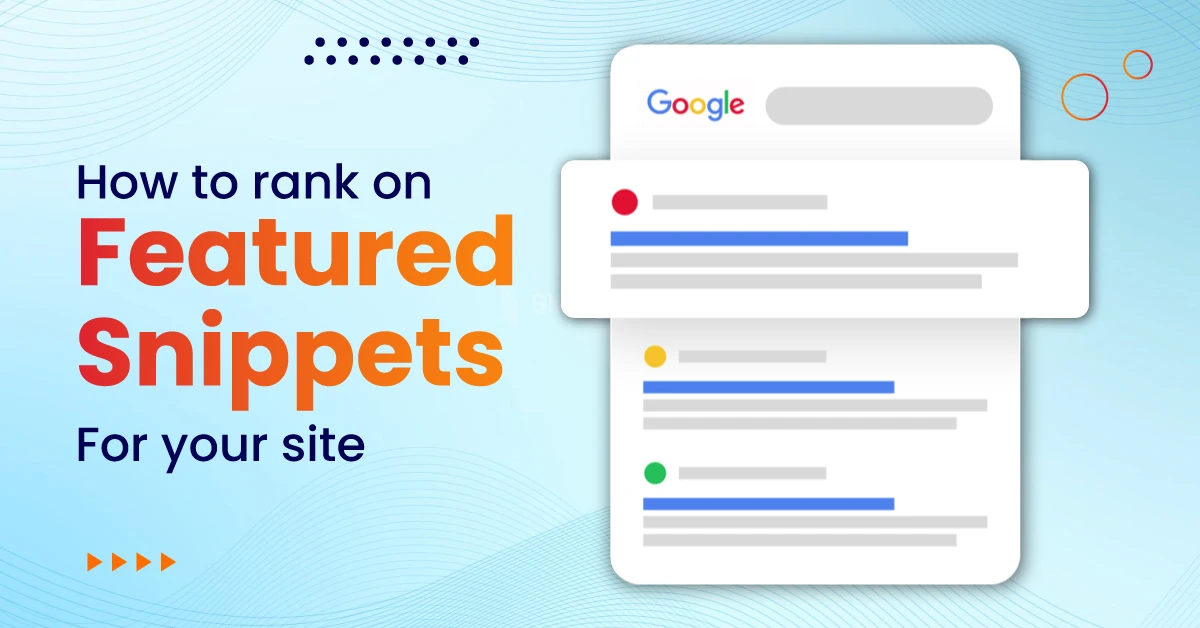
Featured snippets are a type of zero-click result that sits at the top of the search engine results page and gives a short, direct answer to the query. Featured snippets can lift visibility and still drive traffic to your website, even when some users do not click the link.
Optimizing for a featured snippet means reading user intent closely and writing concise, accurate answers that match the question. Featured snippets are a key part of zero-click searches, so businesses should treat snippet optimization as a priority.
Featured snippets often show lists, tables, or tight paragraphs that answer a question fast; winning this “position zero” spot can raise brand trust, and you improve your odds by using clear headings, bullet points, and direct responses to common questions; schema markup also helps a search engine read your structure, which can increase selection for the snippet box.
The Rise of AI Overviews
AI overviews are a newer result type that uses artificial intelligence to summarize page content into a crisp answer. AI overviews aim to be accurate and concise, which reduces the need for users to visit a website for simple questions.
AI overviews pull details from multiple sources and present a short summary at the top of the Google SERP. A local pack shows a map with nearby businesses that match the query, and it often leads to zero click results when the searcher finds what they need on that panel.
The growth of AI overviews changes how people use search, which affects SEO and digital marketing plans across the board. Businesses should adjust their content so it is easy for AI to understand and display, keeping visibility as search evolves.
AI overviews rely on models that blend data points into one clear summary; this helps users but also lowers click-through rates, so creators should publish authoritative, well-structured pages that AI can parse cleanly and summarize; staying current with AI changes and refining on-page structure is now part of holding your place on the web.
Click Searches and Their Decline
Click searches describe the traditional flow where a user clicks a result to visit a website. The decline of click searches limits chances to bring people to your site, which matters for leads, revenue, and brand growth.
Zero-click searches, AI overviews, and featured snippets are the main forces pushing the change in user behavior. Only 25.6% of desktop searches and 17.3% of mobile searches result in zero clicks. Businesses should update SEO and digital marketing tactics to account for zero-click searches and the growing role of AI overviews.
As zero-click searches grow, relying only on organic clicks is not enough; strengthen brand presence inside SERP features, use social channels, and create content that invites deeper interaction beyond the search page; also track impressions, search visibility, and on-page engagement, not just clicks.
Google Search and Its Evolution
Google search has evolved significantly over the years, with a focus on providing more accurate and concise answers to user queries. The introduction of ai overviews, a featured snippet, and knowledge panels has changed how users interact with a search engine and a website.
Google search continues to evolve, with a focus on providing more personalized and relevant results to users. Zero-click searches are on the rise across demographics, which emphasizes the need for businesses to adapt. Businesses should stay current with changes in Google search to protect visibility and keep traffic flowing to their site.
Google keeps turning the search page into a more interactive, informative space; personalization tunes results to a user’s habits, while AI improves clarity; for brands, SEO is not just about keywords but about content that fits user intent and the new formats on the google serp; tracking algorithm shifts and search engine results features are key to staying competitive.
The Big Difference in User Behavior
Zero-click searches have a significant change in user behavior. Now, people are relying on a search engine to provide quick and accurate answers. Users are clicking very less links to visit a website. They rely on the information shown on the search page itself.
This change in behavior affects a business and a marketer, which calls for a more careful approach to SEO and digital marketing. Break up content into short sentences and paragraphs to enhance readability. Businesses should learn how users search and adjust plans so that content meets those changing needs.
Searchers expect instant answers and prefer fast clarity over visiting many pages; this means you should map intent to a specific keyword and answer it simply, then invite deeper reading; rich media like a video or an infographic can hold attention and move users from the search results into your article or product page.
Keyword Research in the Zero-Click Era
Keyword research is still vital for SEO and digital marketing, but it now needs a more careful approach in the zero-click era. Businesses should focus on user intent and which queries are most likely to return zero-click results.
Keyword research should find chances for a featured snippet, ai overviews, and knowledge panels. Use tools like Keyword Magic Tool and Keyword Overview to find relevant keywords and optimize for zero-click searches. Modern research means checking not just volume but click potential and SERP features; aim for a statistically significant sample, include related questions, and use long-tail keywords to target the exact answer a searcher wants; this helps you win visibility on the open web even when clicks are scarce.
Featured Snippet Optimization
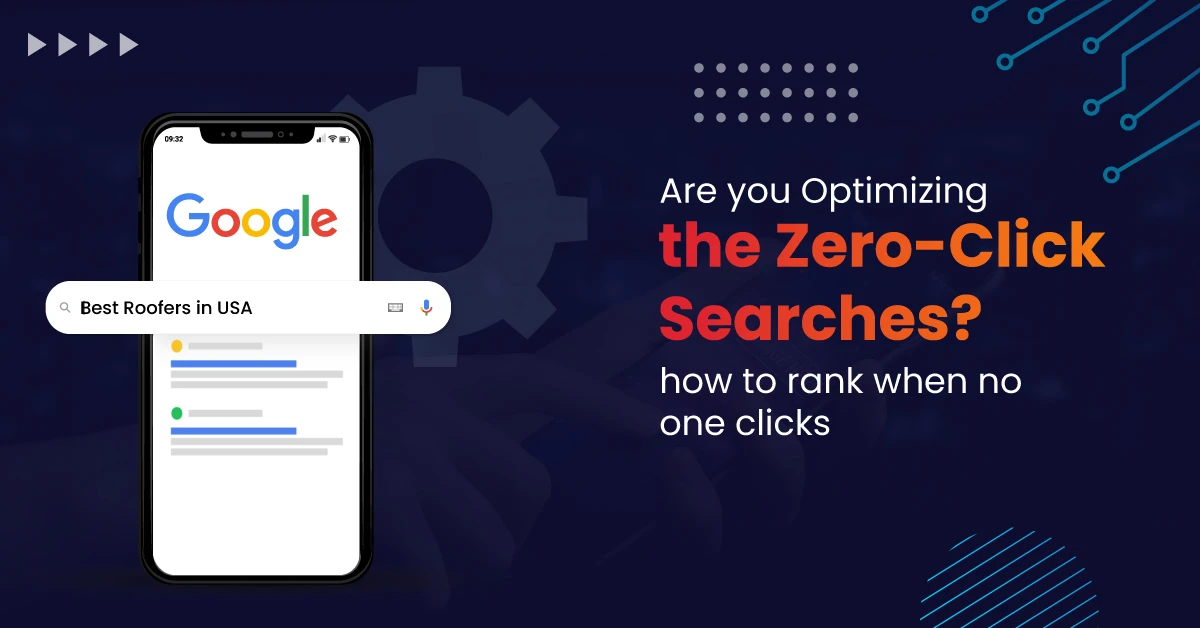
Featured snippet optimization is a key part of SEO and digital marketing in the zero-click era. Businesses should optimize for a featured snippet with clear, direct language that answers the query accurately. Featured snippet optimization depends on reading user intent and providing information that is both relevant and correct.
Use tools like SEO Writing Assistant to refine the structure for featured snippets and improve visibility in search results. To earn the box, answer the specific keyword cleanly, structure sections with headings and bullets, and use tables where helpful; review the competition often and track results with your seo tools so you can refine and keep your ranking as the web and the google serp change.
Future-proof your SEO and move your content to position zero with
smart, snippet-friendly optimization.
Frequently Asked Questions
1. What are zero-click searches?
Zero click searches are queries where the search engine delivers the answer on the search engine results page, so users get what they need without clicking through to the open web.
2. Why are zero-click searches increasing?
Features like featured snippets, knowledge panels, AI overviews, local pack cards, and People Also Ask boxes give concise answers inside Google’s interface, which reduces traditional click searches to external sites.
3. How do zero-click searches affect SEO?
They lower organic traffic from Google searches, so SEO must prioritize visibility inside the Google SERP by optimizing content for SERP features, branded presence, and clear answers that match intent.
4. Can websites still benefit from zero-click searches?
Yes, prominent placement builds trust and awareness, and well-structured pages can earn follow-up visits when searchers want deeper detail, a richer article, or a video walkthrough.
5. What types of zero-click results exist?
Common formats include featured snippet panels, direct answer boxes, knowledge panels, AI overviews, local pack listings, and People Also Ask modules that expand on the search page.
6. How can I optimize my content for zero-click searches?
Target a specific keyword, answer it clearly near the top, use schema markup, tight headings and lists, and include related questions to capture People Also Ask and local intent.
7. Do zero-click searches happen more on mobile or desktop?
They appear across mobile searches and desktop searches, though patterns shift by query type and layout; some periods have seen reports that mobile searches fell for certain categories.
8. How does zero-click search behavior vary by region?
Zero-click search behavior can differ between the US and the EU panel as design, policy, and user habits vary; review Search Console data with a statistically significant sample to validate the impact.
9. What is the future outlook for zero-click searches?
As Google evolves, AI overviews and richer search results will expand, so teams should refine keyword research, structure pages for answers, and track search visibility alongside clicks.
Published: September 19th, 2025


